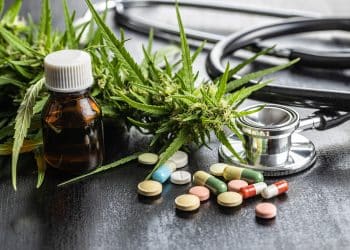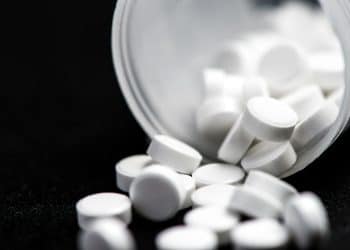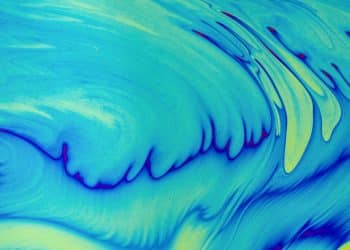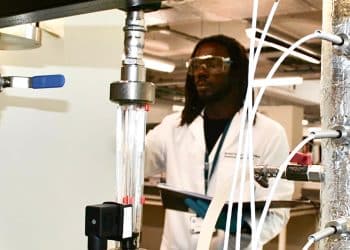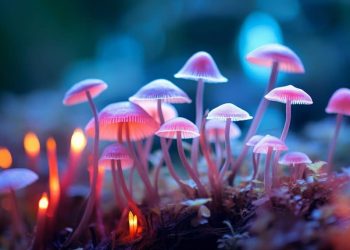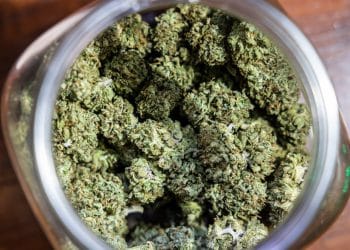Cannabidiol (CBD) – even a single dose reduces brain function abnormalities in individuals suffering psychosis, new research finds. [2] Scientists have now demonstrated how CBD alters the brain to counter the symptoms of psychosis.
Past studies have suggested that CBD can alleviate psychosis symptoms. [1] But recent research, published in JAMA Psychiatry and funded by the UK’s Medical Research Council, illustrates how CBD behaves in the human brain to create therapeutic effects for those in a psychotic state. []
Traditional anti-psychotics were developed in the 1950s; they target dopamine receptors and are known for a wide profile of undesirable side effects. [3] CBD appears to work in a different way.
Researchers from King’s College London conducted a parallel, double-blind, placebo-controlled randomized clinical trial. A total of 52 individuals participated in the study: 33 with clinical symptoms of psychosis (but no previous treatment) and 19 healthy controls. Participants performed a verbal learning task designed to activate psychosis-related brain regions. Researchers measured brain activity using functional magnetic resonance imaging (fMRI). The three regions of the brain under measure were the striatum, medial temporal cortex, and midbrain. [2]
Prior to the tests, researchers administered 600 mg CBD to 16 of the psychosis participants and gave a placebo to the remaining 17. The healthy controls were given neither CBD nor a placebo, and their images and verbal scores were used as a bench-mark for comparison against the two study groups. []
Not surprisingly, those with psychosis demonstrated abnormal brain activity compared to healthy controls. However, the CBD group experienced greater brain activation compared to the placebo group. CBD partially corrected the abnormalities of psychosis and pushed participants toward normal brain activation levels. [2]
Activity in these brain regions therefore likely plays a role in how CBD mitigates psychosis symptoms. As the researchers point out, “As these regions are critical to the pathophysiology of psychosis, the influence of CBD at these sites could underlie its therapeutic effects on psychotic symptoms.” [2]
Previous scientific research had demonstrated that CBD opposes the psychoactive effects of tetrahydrocannabinol (THC). [4] In some studies, altered response to THC has been linked with the effects of psychosis. [5] CBD opposes and negates these effects, however, appearing to act broadly on psychosis physiology by helping to normalize function in responsible brain regions. [6]
Given the findings of this research, the scientists at King’s College London have since launched a larger trial to determine the clinical viability of CBD for treatment of young people developing psychosis. Each year in the United States, roughly 100,000 youths suffer from episodes of psychosis. The development phase of psychosis is considered particularly important since lack of intervention leads to long-term negative outcomes. Safe treatment options like CBD could revolutionize the prognosis of this mental illness.
References
- Zuardi, A. W., et al. “A Critical Review of the Antipsychotic Effects of Cannabidiol: 30 Years of a Translational Investigation.”Current Pharmaceutical Design. 2012; 18(32): 5131-5140. Cited by = 30, Journal Impact Factor = 052
- Bhattacharyya, S., et al. “Effect of Cannabidiol on Medial Temporal, Midbrain, and Striatal Dysfunction in People at Clinical High Risk of Psychosis: A Randomized Clinical Trial.” JAMA Psychiatry. 2018; 75(11):1107–1117. Times cited = 3, Journal Impact Factor = 16.642.
- Mauril, M.C., et al. “Clinical Pharmacology of Atypical Antipsychotics: An Update.” EXCLI Journal. 2014; 13: 1163-1191. Cited by = 15, Journal Impact Factor = 1.37
- Bhattacharyya, S., et al. “Opposite Effects of Δ-9-Tetrahydrocannabinol and Cannabidiol on Human Brain Function and Psychopathology.” 2009; 35(3): 764-774. Cited by = 115, Journal Impact Factor = 6.399
- Ranganathan, M., et al. “208. Predictors of Cannabis-Induced Psychosis.” Schizophrenia Bulletin.2017; 43(1): Journal Impact Factor = 7.575
- Leweke, F. M., et al. “Cannabidiol Enhances Anandamide Signaling and Alleviates Psychotic Symptoms of Schizophrenia.” Transl2012; 2: e94. Cited by = 135, Journal Impact Factor = 5.620
Images: cc0 public
Tamir: the original link went directly to the study… this updated link goes to sciencedirect.com’s coverge of the study. Would we want to link to someone else’s news coverage, or the actual study? This is the actual study, previously linked: https://jamanetwork.com/journals/jamapsychiatry/article-abstract/2697762
Tamir: I removed the line that offended you, but it comes from the study. Psychotic brain scans require comparison against healthy (non-psychotic) subjects and placebos affect healthy subjects (in potentially novel ways). It is therefore logical to not give healthy subjects CBD or a placebo prior to the experimental test and brain scans.
This way, you have three groups: psychosis with placebo, psychosis with CBD, and no-drug healthy subjects. The scientists could then determine how much the placebo helped vs CBD in psychosis against baseline, non-drug normal. The only purpose of the healthy controls is to establish a baseline for the verbal learning task and brain scans. If the healthy subjects were given a placebo or CBD, you would no longer be able to determine statistical significance for interventions against psychosis/abnormal states. It was easier to remove it than explain all of this.
Tamir – I followed the format laid out in your editorial guideline, version 2, sent out to all writers (other than including doi, which I only did because it makes finding the studies so easy). Here is a screenshot:


